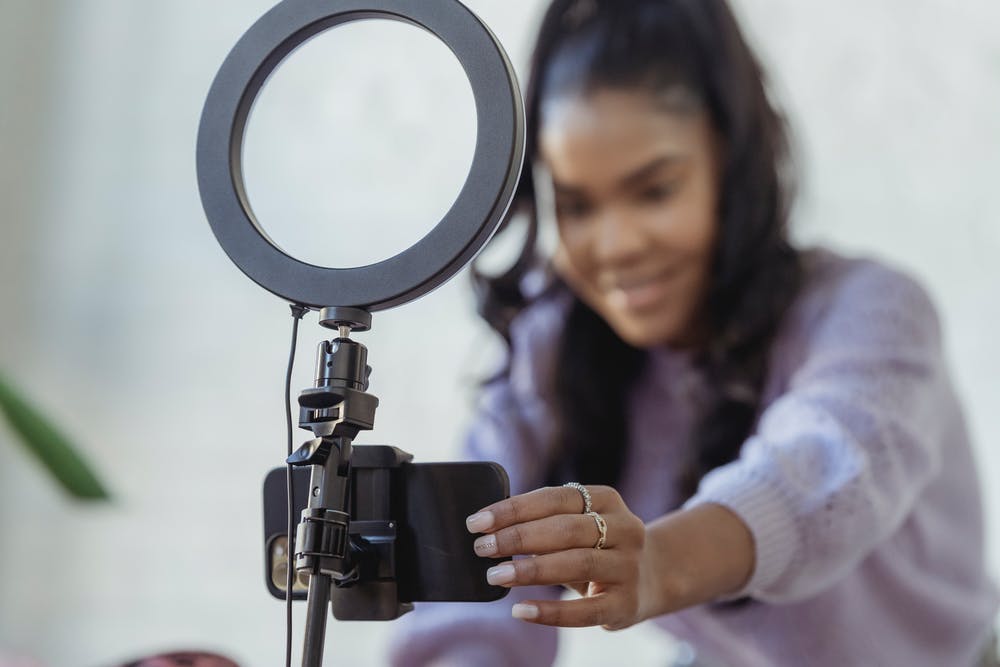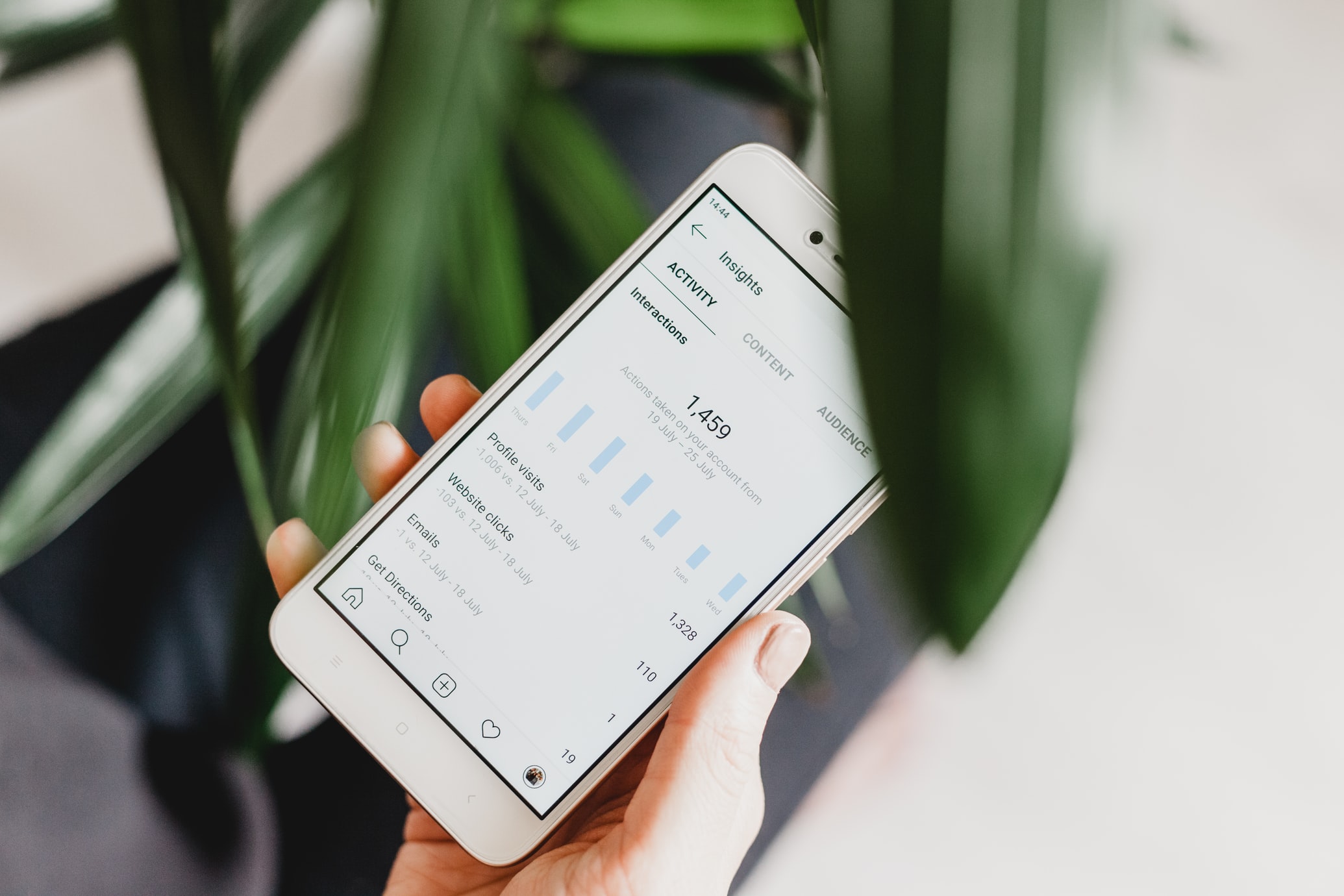For thousands of years, society has been driven by influential people who are able to inspire people’s beliefs and decisions. Today, the rise of influencer marketing and celebrity endorsements represents a growing opportunity for brands to leverage fame and expertise in order to earn their target audience’s trust while inspiring them to make purchases.
But while celebrity endorsements and influencer marketing have long been considered a powerful tool in the belt of B2C marketers, today, we’d like to show you how these marketing strategies can also be used in the B2B space to drive sales like never before.
What’s the difference between a celebrity endorsement and B2B influencer marketing?
On the surface, celebrity endorsements and influencer marketing may seem quite similar, but their goals are worlds apart, and they rely on completely different marketing methods to make sales.
Celebrity endorsements leverage the fame of the celebrity to promote products and services and build brand awareness. Notably, these celebrities do not need to be experts on the products they are endorsing, nor do they need to be leaders in the industry, as the campaign is based on their fame, not on their expertise.
Influencer marketing, on the other hand, uses word-of-mouth advertising from top content creators and subject matter experts who are influential in their chosen niche. Influencers may not be celebrities in the traditional sense of the word, but they can have thousands or even millions of fans and subscribers. B2B influencer marketing leverages the expertise of the influencer to build trust and brand affinity.
How does influencer marketing work?
An influencer is a top content creator who has built an entire community around themselves and their niche. This means they have extensive knowledge on their chosen topic, and can offer meaningful insights, experience, and informed opinions on the subject.
One of the defining features of an influencer is their constant engagement with their subscribers. While celebrities rarely interact with their fans beyond the occasional handshake or autograph, influencers actively engage with their communities, responding to comments, answering questions, and even producing new content based on feedback from their viewers. Communities surrounding influencers are often primed to receive messages and engage with content long before a brand comes onto the scene.
When an influencer produces a piece of sponsored content, it’s part of an ongoing conversation that the community can continually engage with, making it far more interactive than the ‘one and done’ style of celebrity endorsements. This allows influencers to produce messages that are more relevant, authentic, credible, and trustworthy.

How does B2B influencer marketing benefit brands?
Marketing through influencers takes a more interactive and personalised approach to reaching target audiences, making it an excellent option for building brand affinity and trust, particularly within B2B marketing.
By aligning with an influencer who has already proven their expertise, and built trust with a relevant audience, brands can gain a valuable foothold within an existing community without all the effort and costs that go into building one from scratch.
This can be a prized tool in the hands of B2B brands where customers are typically less inclined to make an uninformed decision or take risks on a purchase. While consumers may be ‘wowed’ by a big celebrity name, businesses are more interested in gaining useful information and insights from a source they can trust. An industry expert and global influencer in big data and analytics such as Ronald van Loon, for example, is likely to be a lot more credible and hold a lot more sway over a target market’s purchasing decisions than, say, Kim Kardashian touting the next greatest ‘thing’ in big data analytics software.
How do B2B celebrity endorsements work?
Celebrity endorsements are outbound focused. This means they can be seen and heard, but rarely will fans have the opportunity to interact directly with the celebrity.
Celebrities are rarely considered experts in the field and therefore cannot be expected to have an insightful discussion about the products, services, or brand. In this instance, it’s their name that’s driving interest in the brand, rather than their knowledge of the subject. While influencer marketing often looks more like a conversation between peers, celebrity endorsements typically take the form of a single message through channels such as television, social media, newspapers, and billboards.
Celebrity endorsements can be a powerful marketing tool within the B2C space, however, they’re not always as effective when it comes to B2B marketing. In fact, B2B celebrity endorsements may even feel inauthentic, so we recommend exercising caution with this style of marketing.
Who controls the brand message?
Another key difference between celebrity endorsements and influencer marketing is who is control of the brand message.
With celebrity endorsements, your brand is in control of the message, which means you’ll be responsible for conceptualising, producing, and distributing the content, often through paid media channels.
By contrast, marketing through influencers typically puts the influencer in control. This means the influencer will be responsible for choosing the message they wish to convey and how they wish to convey it, and producing the final content. Often, the influencer is also responsible for distributing the content on their own channels, though content such as guest blogs can also be shared on company channels.

The blurred lines between celebrity endorsements and B2B influencer marketing
As influencer culture continues to grow within society, the lines between an influencer and a celebrity are beginning to become blurred. Nowhere is this clearer than within the B2B marketing space.
These days, subject matter experts are gaining near-celebrity status for their position or knowledge within their field. American author, businessman, marketer, and public speaker, Seth Godin, is an excellent example of the heights an influencer can reach. Considered the ‘ultimate entrepreneur’, Seth Godin’s marketing knowledge and business nous have made him one of the most powerful voices in the marketing space, and an influential thought leader in many business circles.
The rise of the ‘celebrity influencer’ represents a unique opportunity for B2B businesses to take the best aspects of celebrity endorsements and combine them with the more authentic and engaging message of marketing through influencers. By turning a celebrity influencer into a megaphone for your brand, not only can you benefit from the extra publicity of partnering with a ‘big name’, you’ll also be able to offer reliable and credible content from an expert your audience already trusts.
The results: celebrity endorsement and influencer marketing statistics
Celebrity endorsements are a popular tactic that studies have found can increase a company’s sales by an average of 4%. However, hiring a celebrity is often an expensive process, so you’ll need to weigh the potential gains against the costs. Celebrity endorsements may also be less effective than other marketing strategies when it comes to the B2B space where customers are typically looking for informed opinions and expert recommendations.
On the other side of the coin, roughly 80% of marketers consider marketing through influencers to be an effective strategy, with 89% saying it’s just as effective, if not more so than other marketing channels. But, once again, you’ll need to measure the returns of a B2B influencer marketing strategy against the costs of hiring an influencer. Bear in mind that the greater the reach and the more well-known your influencer, the more money they’re likely to expect from the partnership. Top influencers, such as finance thought leader Xavier Gomez, or top SEO expert, Rand Fishkin, for example, may expect many thousands of dollars for appearing at a convention as a keynote speaker.
A third route that businesses on a limited budget may wish to consider is partnering with a micro-influencer. Micro-influencers are lesser-known figures with anywhere between 1,000 to 10,000 followers. Due to their smaller audience, most micro-influencers will cost significantly less than a celebrity influencer, though you shouldn’t mistake their reach as a sign of their quality. Many micro-influencers work in very specific niches that attract a very particular community. Micro-influencers can represent a direct line of contact between a brand and smaller, tight-knit audiences that may otherwise be difficult to reach. In fact, studies have shown that this highly targeted form of influencer marketing can be extremely effective, with 82% of responders saying they were likely to buy something a micro-influencer had recommended.
Are celebrity endorsements and influencer marketing worth it?
Our recommendation? Budget permitting — you should definitely consider influencer marketing as a potential avenue for generating conversations and interest around your business. While celebrity endorsements can get a lot of eyes on your brand, celebrities don’t always have quite the same ‘pull’ as they do in the B2C sector, nor can they offer the expertise or authenticity that businesses are looking for when making a purchasing decision. Celebrities can also be expensive, so you may end up with less of a return on your investment than if you’d simply chosen to pay for traditional advertising.
By contrast, marketing through influencers relies on creating informative, trustworthy, and authentic content from a subject matter expert. Influencers can deliver highly targeted and authoritative messaging while also offering your brand the benefits of being able to tap into a community that’s already engaging with the influencer’s content. Influencers can continue conversations with their subscribers, respond to their messages, and even create additional content to answer any questions that may arise. This means, rather than paying for a single message as you would with a celebrity endorsement, influencer marketing allows you to open an ongoing dialogue surrounding your brand, products, or services.
Alternatively, if you’ve got the budget, you can get the best of both worlds by partnering with a celebrity influencer such as digital marketing pioneer, Ann Hadley, business growth expert, Jay Baer, or organisational psychologist and author, Adam Grant, who’s considered one of the top ten most influential management thinkers. These celebrity influencers have the big name to get eyes on your brand, and the expertise to match.

How to make your B2B influencer marketing strategy a success
The key to success is to ensure that the messaging, industry, and values of your brand align with those of the influencer you’re partnering with so that you can create a consistent, honest, and authentic message.
Here are a few insights from a series of influencer marketing experiments conducted by HubSpot. You can use these insights to help you create a successful influencer marketing strategy that drives results for your B2B brand.
- Partnering with one high-performing influencer is better than seeking out multiple lower performing ones. Focus your time and efforts on building a relationship with a single heavy hitter rather than 5-10 mid-level influencers.
- Influencers aren’t a ‘magic bullet’ and the success of your B2B influencer marketing strategy still hinges on producing relevant, authentic, and high-quality content.
- Prioritising the quality of your content will result in posts that generate traffic on their own merits, not just on the strength of the influencer’s name. This will allow you to attract viewers even outside of the influencer’s established community.
Your successful influencer marketing strategy checklist
There’s no doubt that a strong influencer marketing strategy can lead to excellent results and a high ROI, but only if you take the time to carefully consider your options and plan out your approach. This checklist can help you make sure you’re making the right decisions when engaging an influencer.
- Define your goals
Defining your goals early is essential to mapping out a successful influencer marketing strategy. You can use your goals as a guide to help you decide what content you should produce, what influencer you should partner with, which channels you should distribute through, and how you’ll be measuring your success after the campaign. - Define your audience
Identifying your target audience is vital to choosing the right influencer, as well as the channels you should be using to get your message out there. - Determine the type of content you wish to produce
Influencers produce all kinds of content in their own unique style, so it’s important to identify the type of content you need before engaging an influencer. For example, if you’re looking for a guest blog, a Twitch or TikTok influencer is unlikely to be able to create the kind of content you need. - Write a shortlist of relevant influencers
Marketing through influencers only works when you partner with a subject matter expert within your niche, so it’s best to create a list of prospective influencers that are relevant to your brand. Your favourite influencer may have extensive reach, but if it’s in the wrong industry they’ll be all but useless to your marketing campaign. Be sure you’re tapping into the right market by choosing a relevant influencer. - Set out your brand’s values
A disconnect between your brand’s values and those of your influencer can result in a message that rings false to their viewers. Remember, these communities have been engaging with this influencer for a long time, so they’ll have no trouble identifying an inauthentic message. Writing down your brand’s core values can help you determine whether they align with those of your influencer so that you can create a message that people trust. - Work out your budget
A celebrity influencer is likely to demand a higher price than a lesser-known influencer. Determining your budget early can help you make realistic decisions about whether you can pay a big celebrity influencer, or whether you should be focusing your efforts on a more targeted, micro-influencer. - Identify potential conflicts of interest
With the rising popularity of influencer marketing, many influencers have already been approached by companies looking for partnerships. This means your first influencer of choice may already have a contract with a direct competitor. Partnering with an influencer who is already working with a competitor could result in contract clashes. It may also lead to your message being seen as inauthentic while the influencer could even be considered a sell-out. Be sure to check beforehand if your influencer has any prior contracts so that you can decide if you should pursue the partnership or seek out someone else. - Set expectations
Setting expectations early can help define the relationship while preventing misunderstandings in the future. It’s best to clearly lay out the terms of the partnership, including the type of content you’re looking for, deadlines, how you’ll be communicating, additional terms, and, of course, payment - Create contingency plans
People can be unpredictable, so it’s best to put a series of contingencies in place to protect you in the event of your influencer going rogue or failing to deliver. You want to be able to terminate the contract if your influencer’s behaviour begins to reflect poorly on your brand. You may also wish to set up plans for minimising the damage if an influencer becomes a liability. Better safe than sorry, as they say. - Establish your measurements for success
It’s essential that you set out your KPIs at the very beginning of the planning stage so that you can measure the success of your campaign. KPIs will vary depending on your marketing channels and content style, but common measurements include traffic, engagement, and conversions. This can help you determine whether influencer marketing will be a permanent fixture in your marketing strategy, or whether other channels and content deliver a better ROI.





